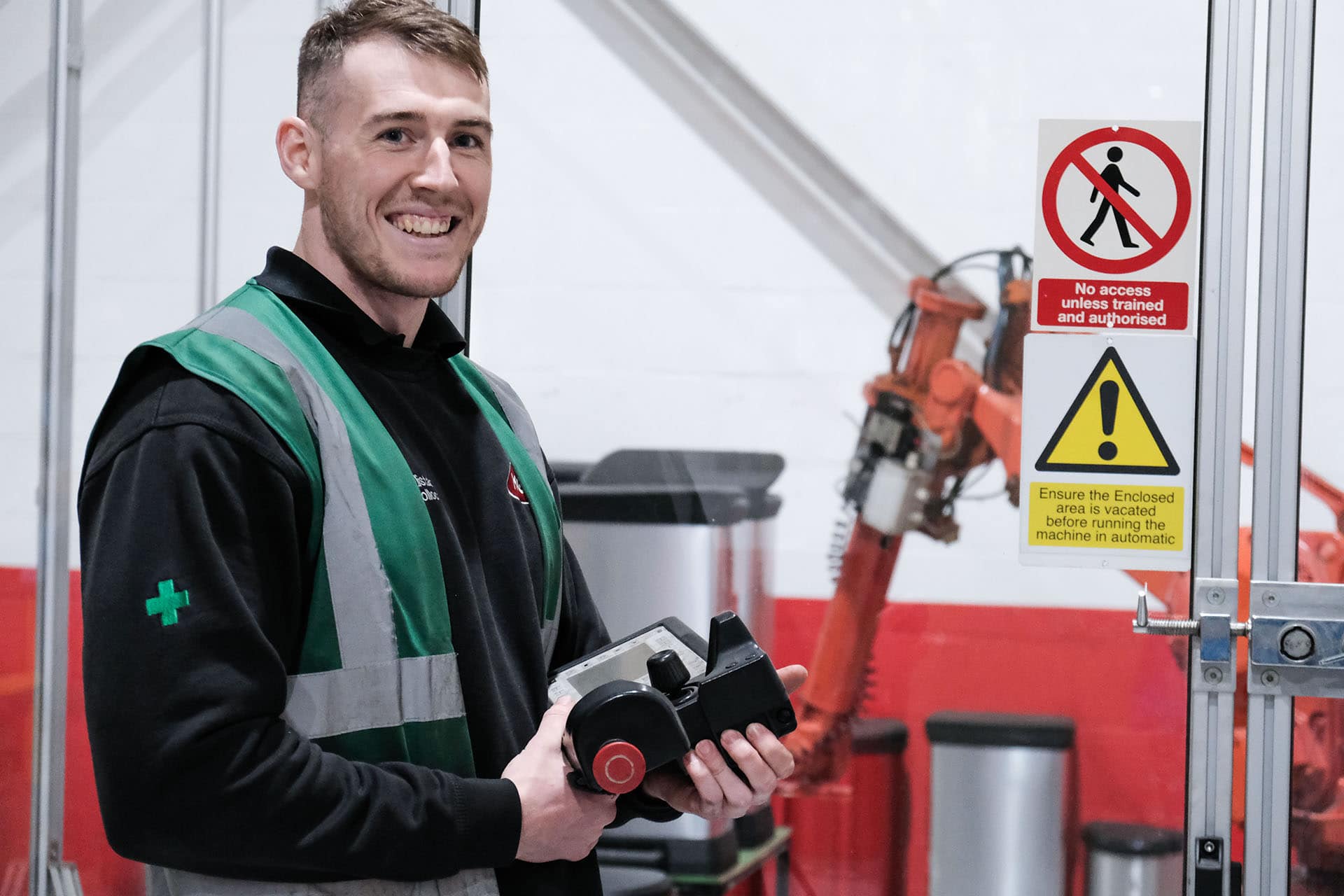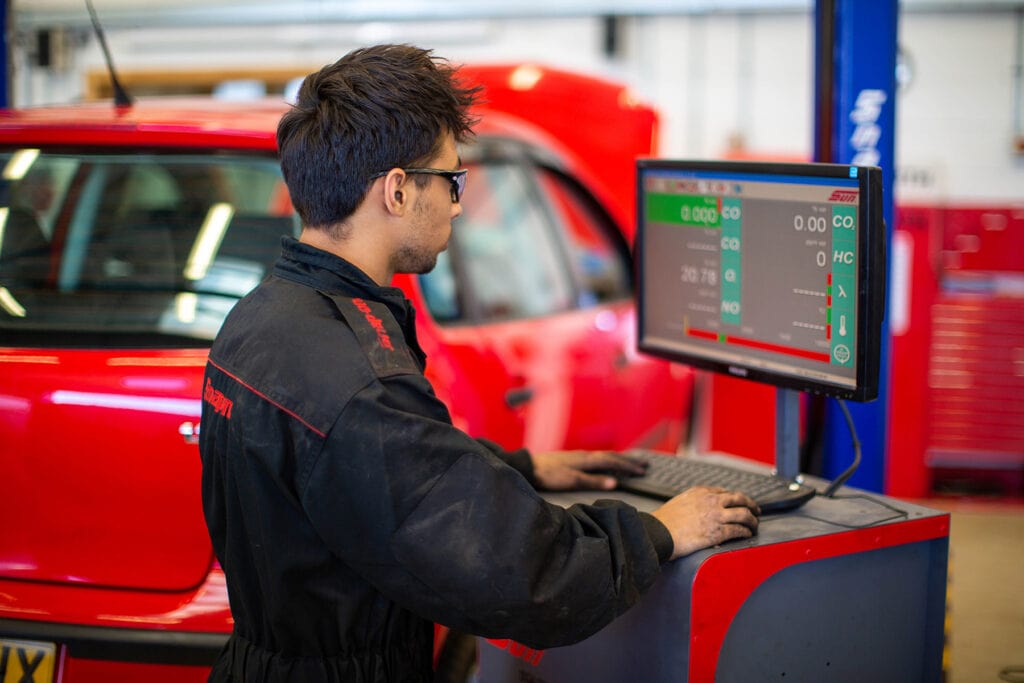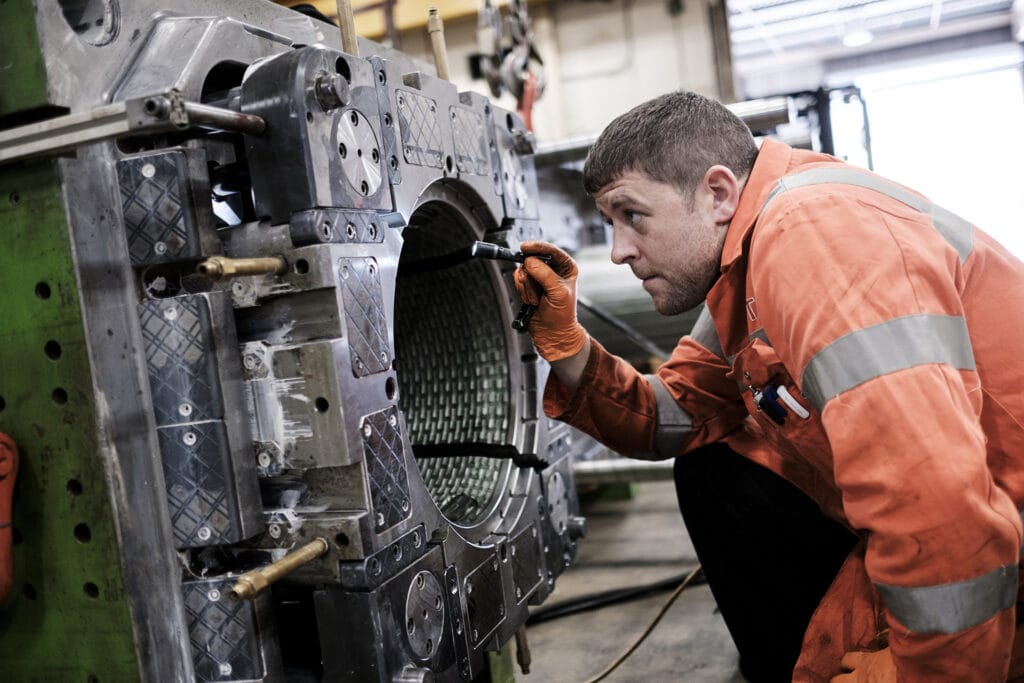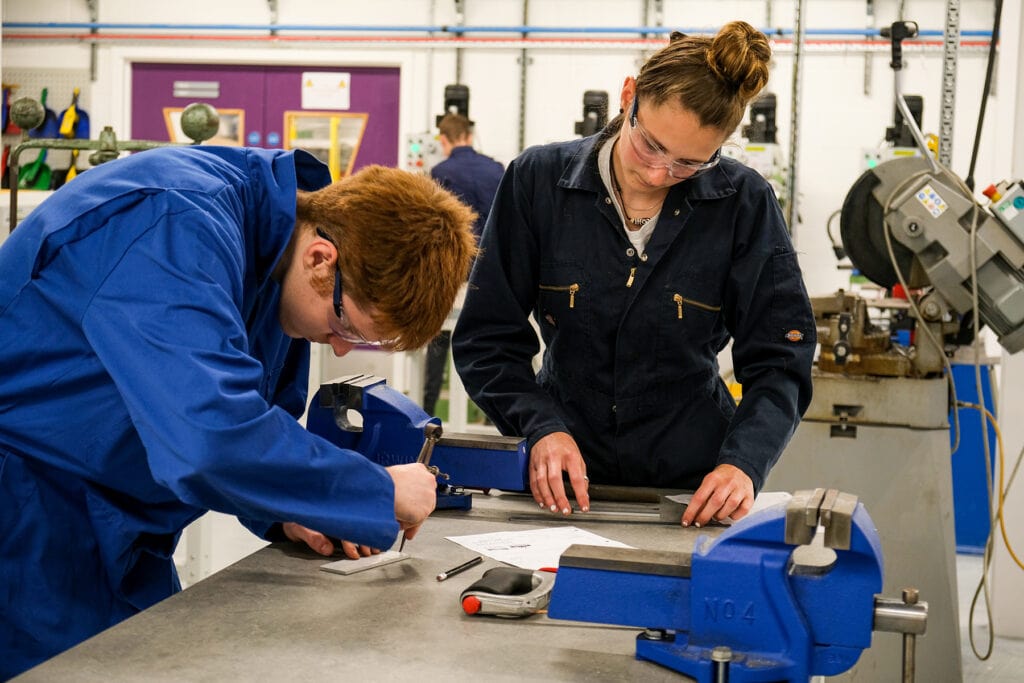WHY CHOOSE THIS COURSE?
This apprenticeship standard equips apprentices with essential skills and knowledge for a successful career in the manufacturing and engineering sectors. This Level 2 apprenticeship covers a wide range of specialist roles, including Servicing and Maintenance Operative, Machine Setter/Operative, Mechanical Engineering Operative, Fabricator, Engineering Fitter, Multi-disciplined Engineering Operative, Materials Processing and Finishing Operative, Technical Support Operative, and Founding/Casting Operative. Apprentices will learn to maintain and service equipment, handle breakdowns, operate various machines, and perform fabrication and assembly tasks, ensuring they are well-prepared to meet industry demands and contribute to their employers’ growth and success.
Apply for this course
Start date: 03/11/2025
TOP COURSE HIGHLIGHTS
Industry-standard facilities
Highly experienced tutors
Develop skills in line with industry needs
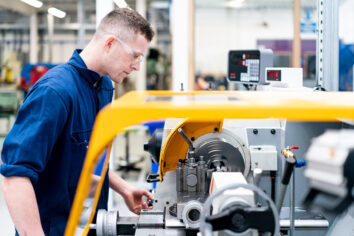
Learn from sector experts
Gain invaluable insights and hands-on experience from industry expert tutors who bring real-world knowledge and expertise to the classroom. Their guidance will help you develop the skills and confidence needed to excel in your chosen field.
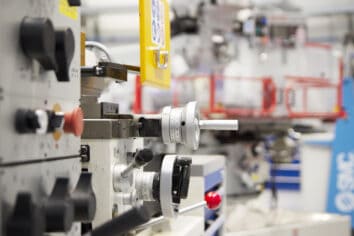
Develop work-related skills
Enhance your practical abilities and gain hands-on experience that directly translates to the workplace. This apprenticeship course focuses on real-world applications, ensuring you are well-prepared to meet the demands of your chosen career.

Enjoy professional surroundings
Immerse yourself in a dynamic and supportive environment that mirrors the professional world. This apprenticeship course provides access to state-of-the-art facilities and resources, helping you to thrive and feel confident in your career journey.
WHAT WILL I LEARN?
Knowledge This apprenticeship covers essential knowledge for working in the manufacturing and engineering sectors. Apprentices will learn about maintaining and servicing equipment, handling breakdowns, and restoring components and systems. They will gain expertise in operating various machines, including CNC and conventional types, and performing fabrication and assembly tasks. Additionally, apprentices will understand statutory regulations, safety requirements, and environmental compliance procedures. They will be trained to identify hazards, prepare work areas, follow job documentation, and carry out quality checks, ensuring they can work independently or as part of a team with minimal supervision.
Skills This apprenticeship equips apprentices with a range of practical skills essential for the manufacturing and engineering sectors. Apprentices will learn to maintain and service equipment, handle breakdowns, and restore components and systems. They will develop proficiency in operating various machines, including CNC and conventional types, and performing fabrication and assembly tasks. Additionally, apprentices will be trained to prepare materials and equipment for engineering processes, provide technical support, and carry out quality checks. They will also learn to work independently or as part of a team, ensuring the accuracy and timely delivery of their work.
Behaviours Apprentices will exhibit a strong work ethic, reliability, and a proactive approach to continuous improvement, ensuring they can collaborate effectively and contribute positively to team dynamics.
Typical Duties that an Apprentice will carry out in the workplace:
- Maintaining and servicing equipment to ensure it remains in good working condition.
- Handling breakdowns and restoring components and systems by repair or replacement.
- Operating various machines, including CNC and conventional types.
- Performing fabrication and assembly tasks, such as welding and fitting.
- Preparing materials and equipment for engineering processes.
WHERE WILL IT TAKE ME?
Completing the Engineering Operative Apprenticeship Standard opens a variety of careers paths in the manufacturing and engineering sectors. Apprentices can progress onto specialist Level 3 Apprenticeship Standards, such as Machining Technician or Metal Fabricator, with Truro & Penwith College.
ASSESSMENT ARRANGEMENTS
The End-Point Assessment (EPA) is a crucial component of apprenticeship standards, designed to evaluate an apprentice’s knowledge, skills, and behaviours (KSBs) acquired during their training. The EPA typically includes a combination of practical assessments, professional discussions, and portfolio reviews, ensuring apprentices are fully prepared for their chosen career. This assessment is carried out independently by an End-Point Assessment Organisation (EPAO), ensuring impartiality and fairness. Employers play a key role in confirming readiness for the EPA, supporting apprentices throughout the process to achieve successful outcomes.
EPA (End Point Assessment) methods
- Practical Skills Assessment with Questions
- Professional Discussion (Interview) underpinned by a Portfolio of Evidence
ENTRY REQUIREMENTS
Grade 4 GCSE (C) in English and Maths
ADDITIONAL INFORMATION
The College will provide all of the tools and materials for the course, however Apprentices will be responsible for their own PPE and will be required to come equipped with a pair of steel toe capped boots and a pair of safety glasses.
Meet the staff, tour the campus and find out about life as a student at one of the best colleges in the country.
